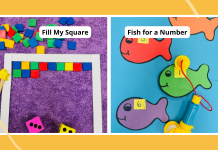In the realm of language education, the lesson plan stands as a cornerstone, illuminating the path towards English proficiency for both instructors and learners alike. With meticulous attention to detail, these roadmaps encapsulate the essence of English lessons, providing a structured framework that guides educators through the labyrinth of language acquisition while empowering students to navigate the diverse terrain of linguistic mastery. Within the domain of ESL (English as a Second Language), lesson plans emerge as dynamic blueprints tailored to the unique needs and aspirations of adult learners. Far beyond the confines of rote memorization, these plans foster an immersive learning experience that transcends traditional language instruction, embracing cultural immersion, communicative competence, and real-world application as integral components of the learning journey. At its core, each English lesson plan is a tapestry of learning objectives, activities, and assessments, intricately woven to inspire curiosity, foster collaboration, and ignite the spark of discovery within the classroom. From the inception of the lesson to its culmination, educators embark on a voyage of pedagogical exploration, navigating through a myriad of teaching methodologies and resources to engage, inspire, and empower learners. From interactive multimedia presentations to immersive language tasks and collaborative projects, each activity is a testament to the creativity and adaptability of educators, offering students a glimpse into the rich tapestry of English language and culture. Assessment, too, plays a pivotal role in the educational landscape, serving as a compass that guides instructors towards student progress, comprehension, and growth. Yet, amidst the rigidity of structure lies the beauty of flexibility. ESL lesson plans are not static entities but living, breathing documents that evolve in tandem with the needs and aspirations of learners. Through responsive curriculum design, educators cultivate an inclusive learning environment that celebrates diversity, fosters curiosity, and nurtures lifelong language learning. In essence, the English lesson plan is more than a mere roadmap; it is a testament to the transformative power of education. Through its guidance, educators unlock the potential of students, inspiring them to embark on a journey of discovery, empowerment, and global citizenship. As each lesson unfolds, so too does the promise of a brighter, more interconnected world, where language becomes a bridge that unites cultures, empowers individuals, and transcends boundaries. In conclusion, lesson planning serves as a beacon of guidance in the realm of adult English language education, illuminating the path towards linguistic mastery and cultural fluency. As educators embrace the challenge of creating transformative learning experiences, they harness the power of comprehensive lesson planning to inspire, motivate, and empower adult learners. Through thoughtful design and purposeful execution, lesson plans become more than mere documents; they become vehicles for change, driving learners towards success and opening doors to new opportunities in the diverse and interconnected world of English language and beyond.








